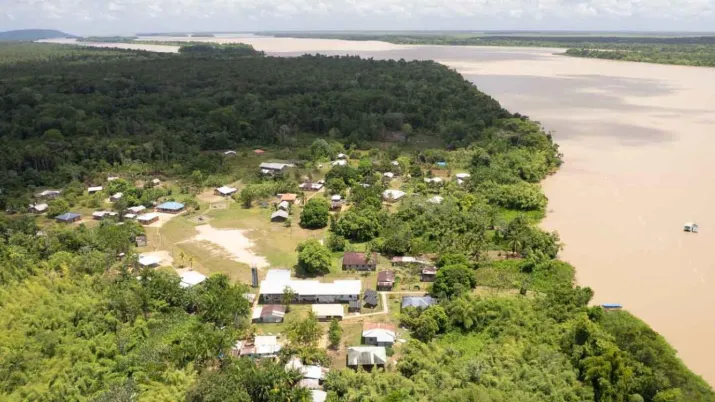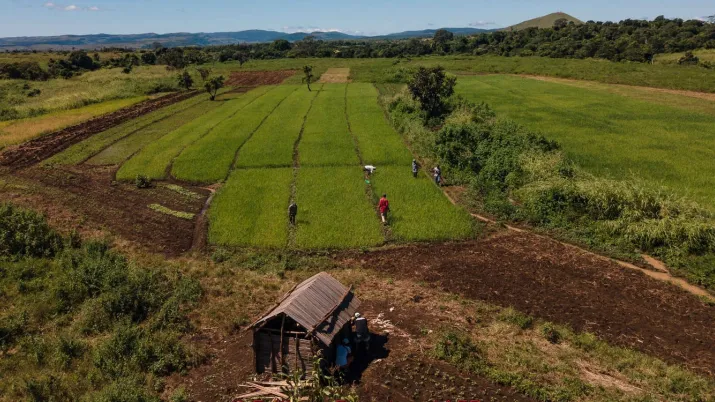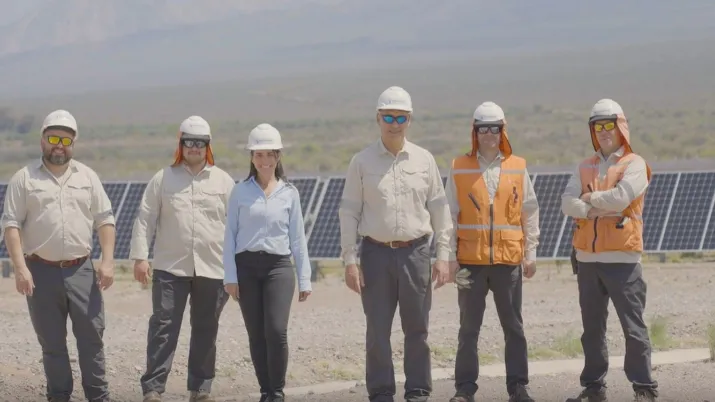Share the page
Developing bioeconomics in the Amazon to protect the planet
Published on

Reducing environmental degradation requires not only ecosystem preservation, but also economic and social growth. The world’s largest rainforest, the Amazon, and its inhabitants, have long been at the center of this duality. Advances in bioeconomics, based on renewable natural resources, are offering new hope, as Brazil prepares to host the COP 30 Summit, in Belém, Pará state, in November 2025.
In 2024, amid growing alarm over the climate crisis, Brazil's President Lula and the French President Emmanuel Macron signed a bilateral agreement between the two countries. In keeping with this commitment, Agence Française de Développement (AFD) has continued to finance bioeconomy initiatives and projects in the Amazon.
Bioeconomics is an economic development model based on values of justice, ethics and inclusion. It produces goods, processes and services efficiently, based on the sustainable use, regeneration and conservation of biodiversity, guided by scientific and traditional knowledge, innovations and technology, with a view to adding value, generating work and income, and ensuring sustainability and climate balance.
In November 2024, AFD Group launched the AMABIO program to support sustainable investment and advance this initiative between France and Brazil. This model, based on renewable natural resources, helps create jobs, generate local income and protect biodiversity.
“We are making considerable progress towards protecting biodiversity in the Amazon, having fully committed to developing the bioeconomy and continuing this cooperation between Brazil and France, in order to achieve global climate goals. We are also advocating the central role of local communities, as key stakeholders in this process,” says Dominique Hautbergue, Director of AFD’s Brazil and the Southern Cone Regional Division.
See also: Establishing strong partnerships with banks in Brazil to implement the 2030 SDG agenda
Supporting local initiatives through Brazilian banks
One of the program’s key principles is to support regional public development banks in directing resources to sustainable, local initiatives. To this end, in 2024, AFD agreed an initial loan of €80 million with Banco da Amazônia (BASA). In February 2025, AFD signed a €2 million grant (approximately R$13 million) with BASA, representing the first material support for innovative bioeconomy projects that could transform people’s lives in the Amazon.
This investment will be used to support collective projects involving producers, companies and local communities: cooperatives, startups, environmental initiatives, and projects led by indigenous peoples, creating jobs and sources of income. Another aim of the program is to mobilize support from the private sector for climate and biodiversity projects.
See also: Agro-industry in French Guyana - Fostering Local Industry in Amazonia
Promoting “sociobiodiversity”
Existing socio-economic value chains must be taken into account for bioeconomics to be effective in the Amazon. For example, according to the Brazilian Institute of Geography and Statistics (IBGE), 1.6 million tons of acai were harvested in 2023, generating revenue of R$8 billion.
Acai cultivation, a longstanding tradition in Amazonia, is a classic example of “sociobiodiversity”, meaning biodiversity that is used, managed and leveraged by indigenous, rural, forest or riverside communities, who have a symbiotic relationship with their environment.
As with other sociobiodiversity products, this sector is facing a number of challenges: traceability, professionalization, fair pay, the prevention of predatory extractivism and the shift to sustainable practices. To address these issues, governments and the international community must commit to a strategy that supports the bioeconomy and promotes biodiversity.
Small-scale farmers: partners and protagonists
In February 2025, experts, public administrators and organizations attended a round table on “From local to global: bioeconomy trajectories in the Amazon” to discuss possible pathways forward in the region.
One key issue is ensuring that family farmers and small-scale producers are included in the bioeconomy through local supply chains. To achieve this, a number of challenges must be overcome, including land tenure regularization, training, formalization of the sociobiodiversity value chain, access to credit and management of market forces on natural resources.
“It is fundamental that the financing granted to financial institutions supports projects and guarantees fair benefits for the local communities that live in the Amazon rainforest and manage its resources, so that they are able to produce and market their goods and services, ensuring their continued presence on the land and perpetuating their role as guardians of sustainability.” says Mathieux Le Grix, Head of AFD’s Agriculture, Rural Development and Biodiversity Division.
Supporting these communities benefits society as a whole. Social justice, Amazonian culture and economic development have a direct impact on the global climate, and must be aligned with forest conservation measures. Preventing deforestation is a priority due to its effects on the entire world.
See also: Brazil: more equitable public policies in response to climate change
Global commitment
International cooperation is essential to support the bioeconomy in Amazonia, in order to promote engagement, awareness and investment on a global scale in this region, dubbed the cradle of the world’s biodiversity. The agreement between Brazil and France sets out an innovative agenda, incorporating social, economic and environmental considerations into sustainable development.
Over the next few years in Amazonia, nature will be at the forefront, with AFD supporting projects in the public and private sector to promote transformative investment in sustainable forest management, effectively combat deforestation, reverse biodiversity loss on an international scale, and help reduce hunger and poverty.
Further reading


Latin America invests in renewable energy to reduce its dependence on fossil fuels
Published on january 27 2025

